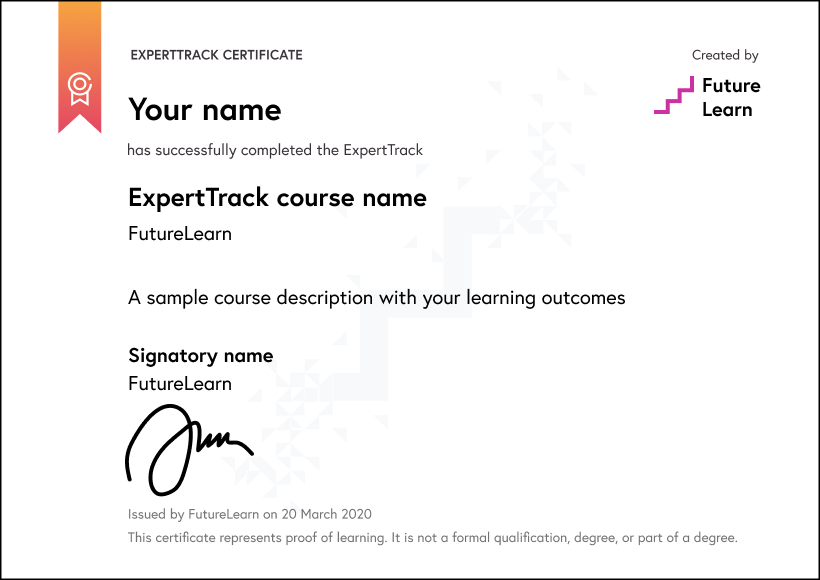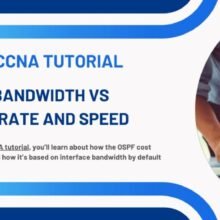Smart Phone Remote Controller ● Widespread Compatibility: Your smartphone can function effectively with the standard connector that is frequently used to replace iOS cellphones.● Plug and Play: Your smartphone may become an…
Digital Marketing Analytics and Measurement: Goals and Attribution Modelling

Understand how to evaluate the true value of your digital marketing activity using web analytics goals and attribution modelling.
Learn to create web analytics goals and use attribution modelling reports
Setting up web analytics goals is an essential component of any digital analytics measurement plan.
On this two-week course, you’ll find out how to set up goals in Google Analytics and how to use attribution modelling reports to go beyond the last click. This practice will help you learn how different channels and content contribute to your end goals throughout the user journey.

Discover how to create and use Google analytics goals effectively
Unveil the art of crafting and harnessing Google Analytics goals with precision and mastery. Adeptly designed to measure specific user interactions that align with your website’s objectives, Google Analytics goals serve as a compass guiding your digital strategy.
By meticulously configuring goals to track crucial actions like form submissions, downloads, or purchases, you gain profound insights into user behavior, funnel effectiveness, and overall conversion rates.
Seamlessly integrating these goals unveils a treasure trove of data, allowing you to fine-tune marketing initiatives, optimize user journeys, and maximize ROI.
From e-commerce magnates to content curators, understanding and implementing Google Analytics goals elevates your online presence, enabling you to strategize, adapt, and triumph in the dynamic digital realm.
You will learn how to set up and customise a range of goals in Google Analytics, including some of the complexities of Google Analytics 4.
You will also explore web analytics goals reports and how to interpret them to gain extra insights on the goals being completed.
Digital Marketing Analytics and Measurement
Digital Marketing Analytics and Measurement play a pivotal role in the modern business landscape, enabling organizations to harness invaluable insights from their online campaigns and strategies.
By meticulously tracking key performance indicators (KPIs) such as website traffic, conversion rates, click-through rates (CTR), and engagement metrics, businesses can make data-driven decisions that enhance their online presence and optimize marketing efforts.
These analytics unveil a comprehensive understanding of consumer behavior, enabling marketers to refine their strategies for maximum impact.
With a strategic focus on SEO, these metrics empower businesses to fine-tune their content and optimize keywords, ultimately boosting search engine rankings and expanding their digital footprint.
In an era where precision and ROI are paramount, leveraging Digital Marketing Analytics and Measurement is not just a choice, but an indispensable tool for fostering sustainable growth and staying ahead in the competitive online arena.
Use attribution modelling to explore the steps of a user journey
Digging deeper, you’ll learn about attribution modelling to understand the different steps of a user’s journey that have led to them completing your goals.
You’ll explore the role of contribution modelling in going beyond last-click attribution, how to use a range of reports in Google Analytics to carry it out, and evaluate the different models available. With this knowledge, you’ll understand the benefits and limitations of the models.
By the end, you’ll know how to set up goals in Google Analytics and evaluate the true value of your digital marketing activity.

What is Attribution Modelling?
Attribution Modelling is the cornerstone of effective digital marketing strategies, offering a systematic approach to understanding the complex journey a consumer takes before converting.
By accurately assigning value to touchpoints across various channels such as social media, organic search, paid advertising, and email campaigns, attribution modelling unravels the true impact of each interaction on the final conversion.
This data-driven insight empowers marketers to allocate resources more judiciously, optimize budget distribution, and fine-tune content strategies for maximum engagement.
By comprehending the nuanced interplay of touchpoints, businesses can craft a seamless and personalized user experience that not only boosts conversions but also enhances customer loyalty.
In the ever-evolving digital landscape, mastering attribution modelling is not just a competitive advantage but a requisite skill to navigate the intricate web of consumer decision-making and elevate brands to new heights of success.
Develop web analytics skills from digital marketing experts
This course is designed by Target Internet’s CEO Daniel Rowles with The Open University. Daniel has provided expertise to well-known brands such as the BBC, Sony, Tesco, Vodafone, Mercedes, L’Oreal, and Warner Bros.
What topics will you cover?
- The role of goals and going beyond last click
- Setting up web analytics goals
- Goal report analysis
- Attribution modelling in perspective
- Attribution modelling models: benefits and limitations
Prove you’re job ready
Highlight the new, job-relevant skills you’ve gained and supplement existing qualifications with a hard-earned, industry-specific digital certificate – plus one for every course within your ExpertTrack.
- Learn the latest in your chosen industry or subject.
- Complete each course and pass assessments.
- Receive certificates validated by the educating organisation.
- Impress employers with learning outcomes you can add to your CV.
- Make your career dreams a reality.

Download a PDF
Learning on this course
On every step of the course you can meet other learners, share your ideas and join in with active discussions in the comments.
What will you achieve?
By the end of the course, you‘ll be able to…
- Evaluate the importance of goals and the limitations of volume-based metrics
- Demonstrate how to set up and customise goals to be aligned with your organisational objectives
- Identify the role of contribution modelling in going beyond last-click attribution
- Evaluate the different attribution models available and their benefits and limitations

Who is the course for?
This course is ideal for those who are interested in using web and channel analytics to get more from their digital marketing activity.
It will be of particular interest to anyone wishing to further their studies and practical knowledge of marketing, communications, and business.
Who will you learn with?

Daniel Rowles
MD TargetInternet.com – helping upskill the world’s leading organisations in Digital Marketing & Digital Transformation.
Host of the Digital Marketing Podcast, a global top 20 business podcast.
Who developed the course?

The Open University
As the UK’s largest university, The Open University (OU) supports thousands of students to achieve their goals and ambitions via supported distance learning, helping to fit learning around professional and personal life commitments.









